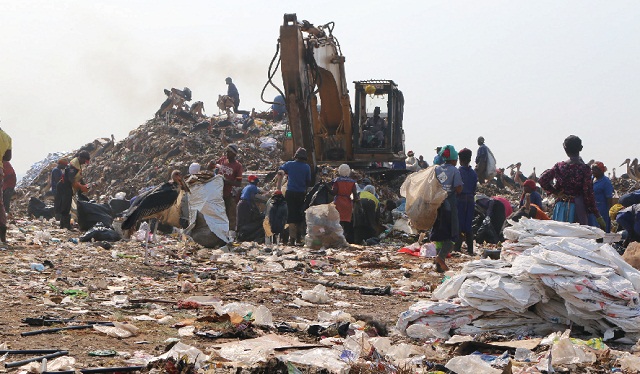
Coco-cola’s new markets
The different reactions appear to be driven by the level of information and attitude of the business owners.
At the time the Chinese government ban filtered through to Uganda in September last year, Conrad van Niekerk, the managing director of Coca-Cola Beverages Africa Uganda whose affiliate; Plastics Recycling Industries, is the largest plastic recycling industry in Uganda received the news with shock.
“It was disappointing because that meant all our efforts at clearing Uganda’s towns and cities of post-consumer plastic waste would be severely challenged,” van Niekerk said in a recent statement.
“That means tonnes of plastic waste will be going into the drainage channels and wetlands.”
Van Niekerk said Uganda also risked losing slightly over $2 million (Approx. Shs 7 billion) in annual revenues.
In a recent interview, however, Simon Kaheru, the Public Affairs and Communications Director at Coca-Cola Beverages Africa Uganda told The Independent the company has already found alternative markets for its recycled plastics in India and Dubai for the short and medium term.
He said the company is also working with Uganda Export Promotion Board to explore more options; including plans to innovate and turn the recycled plastic flake into products that the local Ugandan market can utilize in the long term.
Peter Kaujju, KCCA’s publicist also told The Independent that the city authority has plans for Kampala’s garbage challenge; including plastic waste recycling initiatives with several private sector agencies.
“We are setting up recycling plants in each of Kampala city’s five divisions in conjunction with Coca-Cola (Coca-Cola Beverages Africa),” he said.
Kaheru said Co-Cola will continue working with its partners to recover and recycle the equivalent of 100% of the bottles the company introduces into the Ugandan market.
“Our goal is to retrieve not only the plastic bottles that we introduce to the market but other plastic waste that we remove from the community and convert into economic and commercial use.”
It is not clear how effective Coca-Cola’s drive will be as statistics on volumes of plastic waste are scanty. Kaheru says Coca-Cola has been collecting over 220 tonnes of plastic waste per month from various independent collectors across Uganda.
Last year, over 2000 tonnes were collected and of this, 1996.45 tonnes was polyethylene terephthalate (PET) or recyclable plastics. The company which started operations a decade ago has been exporting over 1000 tonnes of PET to China every year.
Uganda is not alone in this. For over 30 years, China had become the world’s largest importer of waste or “foreign trash”— a valuable source of raw material for China’s booming manufacturing sector.
China has been importing recyclable plastic waste even from large countries like the US, the EU states and Japan. The Bureau of International Recycling China estimates that in 2016, China imported 7.3 million tonnes of plastic scrap from Europe, Japan, the US and 27 million tonnes of waste paper.
In 2016 alone, the US exported 1.42 million tonnes of scrap plastic worth about $495 million. Of all recycled plastic waste collected in the 27 EU countries, up to 87% of this waste ended up on the shores of China.
But a lack of effective supervision led to the trash being a source of enormous environmental and health problems. China moved to reform the import system of solid waste, drawing up a time table to ban solid waste for each industry and category of refuse, to reduce the quantity of imported garbage.
In July, the Chinese government told the World Trade Organization that it would ban imports of 24 categories of recyclables and solid waste by the end of 2017. The campaign against yang laji or “foreign garbage” applies to plastic, textiles and mixed paper and has resulted in China taking a lot less material as it replaces imported materials with recycled materials collected in its own domestic market, from its growing middle-class.
As expected, the impact of the Chinese ban is being felt in far-flung places. Some environmental experts in countries affected by the China ban around the world have looked at the recent Chinese policy shift in a positive manner.
They say the Chinese ban has the potential to propel many waste-exporting countries—who for far too long had taken an “out of sight-out of mind” attitude to waste disposal—to adopt far more progressive disposal and recycling systems.
Writing in The South China Morning Post in December, Tom Baxter, the communications officer at Greenpeace East Asia and Liu Hua, a Greenpeace East Asia’s plastics campaigner, noted that China’s refusal to remain the dumping ground for foreign garbage highlights the need for countries to start facing up to their plastics addiction, and for markets of plastics and disposable goods to take responsibility for the environmental damage inflicted.
 The Independent Uganda: You get the Truth we Pay the Price
The Independent Uganda: You get the Truth we Pay the Price


